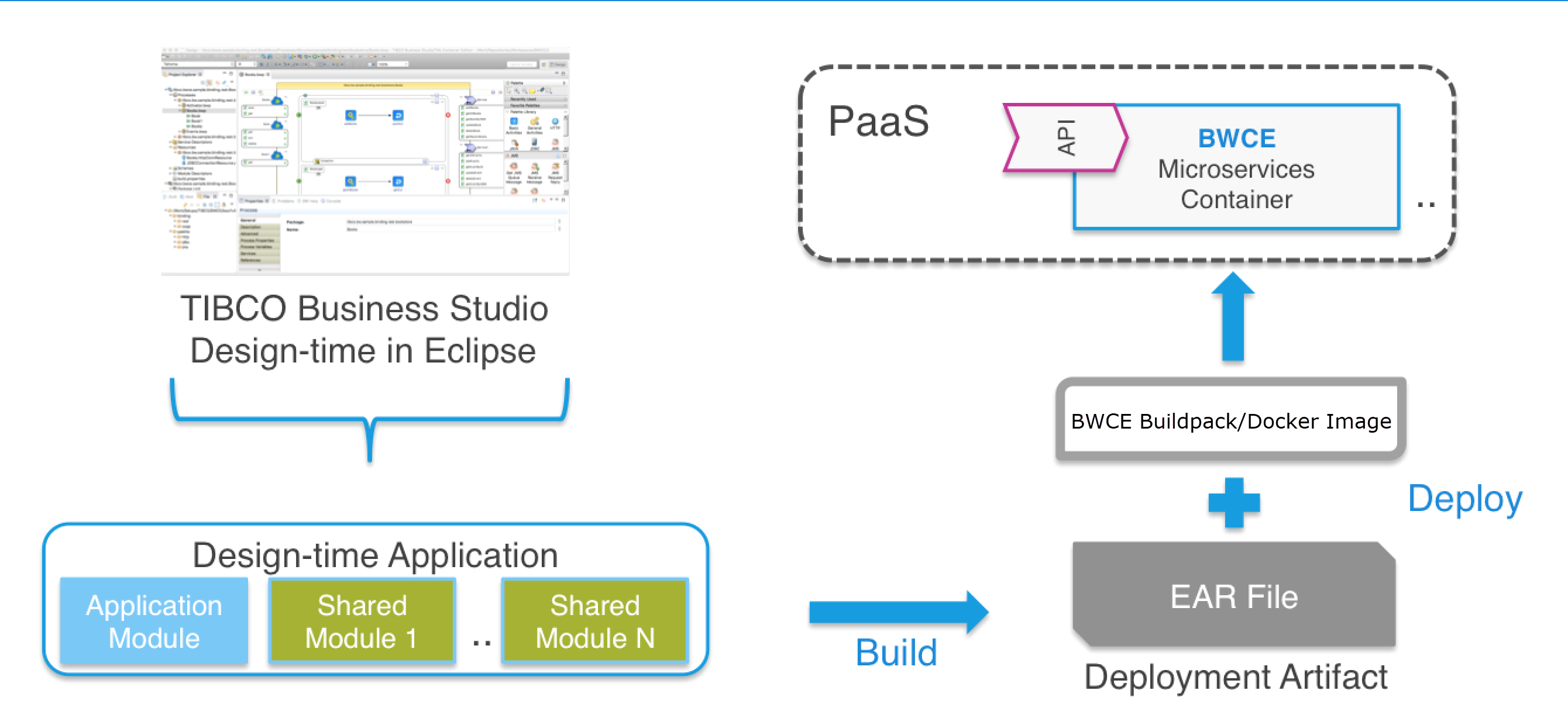Key Concepts
This guide provides an overview of the key concepts that you may encounter when working with the product. Some of these concepts are applicable to design perspective or runtime perspective alone, while some are applicable to both perspectives.
TIBCO BusinessWorks™ Container Edition consists of a design time environment where you develop applications that implement business logic and the runtime environment where you execute the applications.
TIBCO BusinessWorks™ Container Edition is based on open architecture, flexibility, modularity, and support for standards.
Flexibility
TIBCO BusinessWorks™ Container Edition is designed to make it easy to add, upgrade, and swap business components.
Its flexible architecture is demonstrated by:
- A zero coding model that allows you to select and drop activities onto the Process Editor and configure the activities in the UI.
- Ability to build tightly coupled and loosely coupled services.
- Ability to build strongly typed and loosely typed service implementations.
- Ability to specify application configuration to be either hard-coded or late-bound.
- Encapsulation of configuration data, thus minimizing the configuration properties exposed by the application.
Modularity
Modularity of the product supports:
- Large teams and distributed development through modular constructs.
- Increased visibility and traceability metadata, such as Name, Version, Exported Functionality, and Dependencies.
- Reusability with a consistent model across different technologies: Processes, Java Classes, XSDs, WSDLs, and shared resources.

